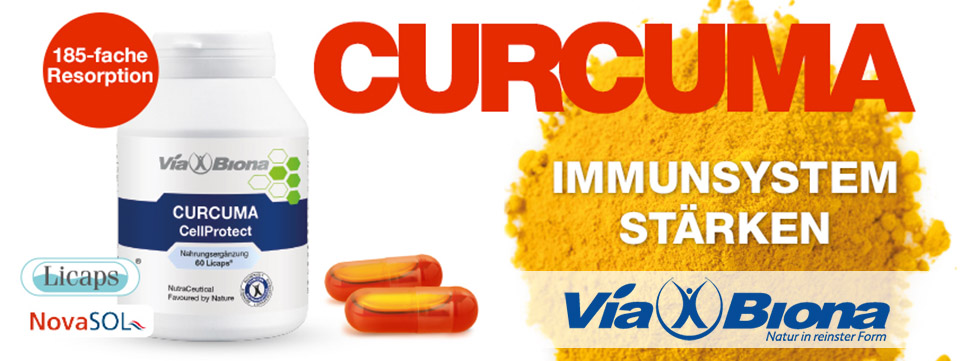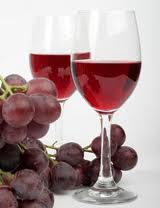Keine natürliche Substanz hat die Biogerontologie – die Erforschung der Ursachen biologischen Alterns – in den letzten Jahren so aufgewirbelt wie die Pflanzenverbindung Resveratrol. Der vor allem in blau- violetten Früchten gebildete Pflanzenstoff gehört der Gruppe der Flavonoide, einer Untergruppe der Polyphenole an. In der Fachsprache als Phytoalexin bezeichnet, sorgt Resveratrol in bestimmten Pflanzen wie den Knöterich-Pflanzen und Weintrauben für die Schutzwehr gegen natürliche Feinde und Umwelteinflüsse. Phytoalexine bilden das „pflanzeneigene Immunsystem“ zum Schutz vor Fraßfeinden, Schädlingen (Parasiten, Bakterien, Pilze), UV-Strahlung, Freien Radikalen, äußeren Verletzungen und Schadstoffen aus der Umwelt.
Für die Wissenschaft ist Trans-3,4,5-trihydroxystilben, wie der biochemische Verbindungsname von Resveratrol lautet, speziell für die Verlangsamung der Zellalterung des menschlichen Organismus bedeutend. Resveratrol wird von Experten der Altersforschung seit einigen Jahren als „biologische Allzweckwaffe“, „Zellalterungsbremse“ und „Schlüsselsubstanz für gesundes Altern“ betrachtet, das eine mächtige Rolle in der Verlangsamung des Alterungsprozess zu spielen scheint.
Erfahren Sie im nächsten Teil mehr zu Resveratrol und seine Fähigkeit zur Verlangsamung der Zellalterung durch Nachahmung der Kalorienrestriktion.
In Studien belegte physiologische Effekte von Resveratrol
- Antioxidative Wirkung
- Verlängerung des Zellalters durch Nachahmung der Effekte der Kalorienrestriktion (CR)
- Immunmodulierende Wirkung: stärkt das Immunsystem und reguliert übersteigerter Immunreaktionen
- Antikanzerogene Wirkung durch Hemmung des NF-κB (Nukleärer Faktor κB)
- Antiinflammatorische Wirkung: steuert Entzündungsprozessen entgegen
- Antimikrobielle Wirkung: hemmt das Wachstum von Bakterien, Pilzen und Viren
- Antithrombotische Wirkung: blutverdünnend, die Blutgerinnung hemmend
- Positive Einfluss auf den Blutzucker- und Insulinhaushalt
- Erhöhung der Knochendichte (Senkung des Osteoporoserisikos)
Referenzen / Ausgewählte Studien
Aggarwal, B. B., et al., Role of resveratrol in prevention and therapy of cancer: preclinical and clinical studies. Anticancer Res. 24 2783-2840. (2004).
Anderson, R. M.; Shanmuganayagam, D.; Weindruch, R. (2009). “Caloric Restriction and Aging: Studies in Mice and Monkeys”. Toxicologic Pathology 37 (1): 47–51.
Baur, Joseph A.; Pearson, Kevin J.; Price, Nathan L.; Jamieson, Hamish A.; Lerin, Carles; Kalra, Avash; Prabhu, Vinayakumar V.; Allard, Joanne S. et al. (2006). “Resveratrol improves health and survival of mice on a high-calorie diet”. Nature 444 (7117): 337–42.
Bianchini F & Vainio H.: Wine and resveratrol: mechanisms of cancer prevention? Eur J Cancer Prev; 12(5):417-425.( 2003).
Chen, D; Guarente, L (2007). “SIR2: a potential target for calorie restriction mimetics”. Trends in Molecular Medicine 13 (2): 64–71.
Crowell, J. A., et al., Resveratrol-associated renal toxicity. Toxicol. Sciences 82 (2004) 614-619.
Dong Z.: Molecular mechanism of the chemopreventive effect of resveratrol. Muta Res; 523-524:145-150. (2003).
Cohen, H. Y.; Miller, C; Bitterman, KJ; Wall, NR; Hekking, B; Kessler, B; Howitz, KT; Gorospe, M et al. (2004). “Calorie Restriction Promotes Mammalian Cell Survival by Inducing the SIRT1 Deacetylase”. Science
Dorrie, J. C., et al., Resveratrol induces extensive apoptosis by depolarizing mitchondrial membranes and activating caspase-9 in acute lymphoblastic leukaemia cells. Cancer Res. 61 (2001) 4731-4739.
Frankel, E. N., Waterhouse, A. L., Kinsella, J. E., Inhibition of human LDL oxidation by resveratrol. Lancet 341 (1993) 1103-1104.
Fontana, L. (2004). “Long-term calorie restriction is highly effective in reducing the risk for atherosclerosis in humans”. Proceedings of the National Academy of Sciences 101: 6659–63.
Fontana, Luigi; Weiss, Edward P.; Villareal, Dennis T.; Klein, Samuel; Holloszy, John O. (2008). “Long-term effects of calorie or protein restriction on serum IGF-1 and IGFBP-3 concentration in humans”. Aging Cell 7 (5): 681–7.
Fulda, S., Debatin, K. M., Sensitization for tumor necrosis factor-related apoptosis-inducing ligand-induced apoptosis by the chemopreventive agent resveratrol. Cancer Res. 64 337-346. (2004).
Gould, K. S., Nature´s Swiss Army Knife: The Diverse Protective Roles of Anthocyanins in Leaves. J. Biomed. Biotechnol. 5 314-320. (2004).
Hung, L. M., et al., Cardioprotective effect of resveratrol, a natural antioxidant derived from grapes. Cardiovasc. Res. 47 (2000) 549-555.
Ignatowicz E & Baer-Dubowska W.: Resveratrol, a natural chemopreventive agent against degenerative diseases. Pol J Pharmacol 2001; 53:557-569. (2001).
Jang, M. S., et al., Cancer chemopreventive activity of resveratrol, a natural product derived from grapes. Science 275 (1997) 218-220.
Kimura Y.: Pharmacological studies on resveratrol. Methods Find Exp Clin Pharmacol 2003; 25(4):297-310. (2003).
Klatsky, A. L., Armstrong, M. A., Friedman, G. D., Red wine, white wine, liquor, beer and risk for coronary artery disease hospitalization. Am. J. Cardiol. 80 (1997) 416-420.
Kundu, J. K., Surh, Y.-J., Molecular basis of chemoprevention by resveratrol: NF-kappaB and AP-1 as potential targets. Mutat. Res. 555 65-80. (2004)
Leighton F., Cuevas A., Guasch V. et al.: Plasma polyphenols and antioxidants, oxidative DNA damage and endothelial function in a diet and wine intervention study in humans. Drugs Exp Clin Res 1999; 25(2-3):133-141. (1999).
Leonard, S., et al., Resveratrol scavenges reactive oxygen species and effects radical-induced cellular responses. Biochem. Biophys. Res. Commun. 309 (2003) 1017-1026.
Lin, S. J., Defossez, P. A., Guarente, L., Requirement of NAD and SIR 2 for lifespan extension by calorie restriction in Saccharomyces cerevisiae. Science 289 (2000) 2126-2128.
Martinez, J., Moreno, J. J., Effect of resveratrol, a natural polyphenolic compound, on reactive oxygen species and prostaglandin production. Biochem. Pharmacol. 59 (2000) 865-870.
Mahyar-Roemer, M., Kohler, H., Roemer, K., Role of Bax in resveratrol-induced apoptosis of colorectal carcinoma cells. BMC Cancer 2 (2002) 27-36.
Mattison, J; Lane, MA; Roth, GS; Ingram, DK (2003). “Calorie restriction in rhesus monkeys”. Experimental Gerontology 38 (1-2): 35–46.
McCay, C. M., Cromwell, M. F., Maynard, L. A., The Effect of retarded growth upon the length of life span upon the ultimate body size. J. Nutr. 10 (1935) 63-79.
Olas, B., et al., Inhibitory effect of resveratrol on free radical generation in blood platelets. Acta Biochem. Pol. 46 (1999) 961-966.
Paul, B., et al., Occurrence of resveratrol and pterostilbene in age-old Darakchasava, an Ayurvedic medicine from India. J. Ethnopharmocol. 68 (1999) 71-76.
Pervaiz, S., Reveratrol. From grapevines to mammalian biology. FASEB J. 17 (2003) 1975-1985.
Spindler, Stephen R. (2010). Biological Effects of Calorie Restriction: Implications for Modification of Human Aging. pp. 367–438.
Subbaramaiah, K., et al., Resveratrol inhibits cyclooxygenase-2 transcription in human mammary epithelial cells. Ann. NY Acad. Sci. 889 (1999) 214-22.
Weiterführende Quellen:

